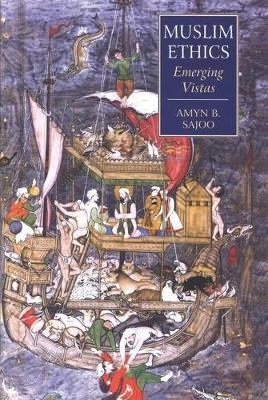This book is also available OPEN ACCESS to download or read online for free.
‘Why should we act ethically?’ is a question readily ignored today in favour of asking what is ethics and how it is applied, which leaves out vast areas of human motivation that concern the nature of moral action and commitment. Responding coherently to these interlocking lines of inquiry requires us to consider conceptions of the ‘good’ in domains public ‘and private, traditional and modern.
Ultimately, this inquiry is tied to individual as well as collective senses of the Self. In Muslim societies where the prevalence of the secular has played itself out so differently than in Europe and North America, the interplay of reason and faith has yielded and continues to yield richly complex ideas of the ‘good’, far beyond the poles of contention that dominate public debate. Neither a rigid orthodoxy about ethics as a timeless body of sacred rules, nor a discourse that reduces the why, how and what of ethics to ‘rationalist’ norms of ‘appropriate’ behaviour can begin to reflect the larger reality Yet such polar reduction is rife, especially in the aftermath of the events of September 11, 2001.
This volume ranges over challenges from civic governance to biomedicine and the environment, through which Muslim ethical frameworks have emerged and are unfolding in our time. Civility, human rights, pluralism and humane action are key themes, mindful of the globalized context in which they increasingly demand the attention of Muslims – including those of the diaspora in the West, and all their fellow citizens. Normative sources such as scriptural texts are joined on the analytical canvas by lived settings and cultural expressions, from novels to fine art, in which diverse moral understandings and intuitions are embedded.
Preface
1. Taking Ethics Seriously: Adab to Zygotes
2. Civility and its Discontents
3. A Humanist Ethos: The Dance of Secular and Religious
4. Pluralist Governance
Appendices
A. The Charter of Medina (622 CE)
B. The Aga Khan Development NetworkThe Aga Khan Development Network (AKDN) is a contemporary endeavour of the Ismaili Imamat to realise the ethics and social conscience of Islam through institutional action. More: An Ethical Framework
C. Excerpts from The Islamic Code of Medical Ethics
Notes
Select Bibliography
Index
Amyn B. Sajoo is the editor of Civil Society in the Muslim World: Contemporary Perspectives (2002) and author of Pluralism in Old Societies and New States (1994). Dr Sajoo currently lectures on civil society, human rights and Islam at Simon Fraser University in Vancouver, Canada, and he is also a regular commentator on public affairs in the news media on both sides of the Atlantic.

